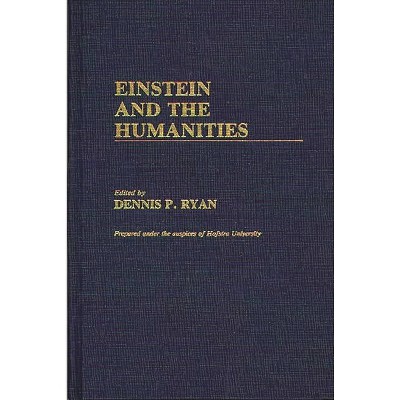Sponsored

Antisthenes of Athens - (Contributions in Philosophy) Annotated by Luis Navia (Hardcover)
In Stock
Sponsored
About this item
Highlights
- Luis E. Navia provides a comprehensive examination of the ideas and contributions of a Greek philosopher who was influential in the development of classical Cynicism.
- About the Author: LUIS E. NAVIA is Professor of Philosophy at New York Institute of Technology.
- 192 Pages
- Philosophy, History & Surveys
- Series Name: Contributions in Philosophy
Description
About the Book
Luis E. Navia provides a comprehensive examination of the ideas and contributions of a Greek philosopher who was influential in the development of classical Cynicism. Based on both primary and secondary sources as well as the findings of modern scholarship, it is a unique contribution to the study of Antisthenes. An important philosopher, only two English-language books about him have been published in the last eighty years. With his clear and accessible narrative style, Navia succeeds in reconstructing Antisthenes' biography resurrecting this ancient philosopher's ideas as still relevant to this day.
Navia describes an integral moment in the history of Greek philosophy--the presence of Antisthenes as a student of the Sophists, an associate of Socrates, and the originator of the Cynic movement. This detailed study of the principal sources, includes an index of relevant names, a bibliography of over two hundred and fifty titles, and an appendix consisting of an extensively annotated translation of Diogenes Laertius' biography of Antisthenes.
Book Synopsis
Luis E. Navia provides a comprehensive examination of the ideas and contributions of a Greek philosopher who was influential in the development of classical Cynicism. Based on both primary and secondary sources as well as the findings of modern scholarship, it is a unique contribution to the study of Antisthenes. An important philosopher, only two English-language books about him have been published in the last eighty years. With his clear and accessible narrative style, Navia succeeds in reconstructing Antisthenes' biography resurrecting this ancient philosopher's ideas as still relevant to this day.
Navia describes an integral moment in the history of Greek philosophy--the presence of Antisthenes as a student of the Sophists, an associate of Socrates, and the originator of the Cynic movement. This detailed study of the principal sources, includes an index of relevant names, a bibliography of over two hundred and fifty titles, and an appendix consisting of an extensively annotated translation of Diogenes Laertius' biography of Antisthenes.Review Quotes
?Navia is an interesting interpreter of the fragmentary evidence, and his observations concerning Anthisthenes's views on language and literature are instructive.?-Practical Philocophy
?The strength of [his] book is in its very attempt to bring Antisthenes into modern discussion, not only scholarly discussion, but discussion among generally educated people.?-Bryn Mawr Classical Review
?Graduate students; faculty and researchers.?-Choice
?Graduate students; faculty and researchers.??Choice
"The strength of Ýhis¨ book is in its very attempt to bring Antisthenes into modern discussion, not only scholarly discussion, but discussion among generally educated people."-Bryn Mawr Classical Review
"Graduate students; faculty and researchers."-Choice
"Navia is an interesting interpreter of the fragmentary evidence, and his observations concerning Anthisthenes's views on language and literature are instructive."-Practical Philocophy
"The strength of [his] book is in its very attempt to bring Antisthenes into modern discussion, not only scholarly discussion, but discussion among generally educated people."-Bryn Mawr Classical Review
About the Author
LUIS E. NAVIA is Professor of Philosophy at New York Institute of Technology. He has written extensively in philosophy and is a member of the New York Academy of Sciences. His most recent books are The Philosophy of Cynicism (Greenwood, 1995), Classical Cynicism: A Critical Study (Greenwood, 1996), Diogenes of Sinope: The Man in the Tub (Greenwood, 1998), and The Adventure of Philosophy (Praeger, 1999).Shipping details
Return details
Frequently bought together
Trending Philosophy

















